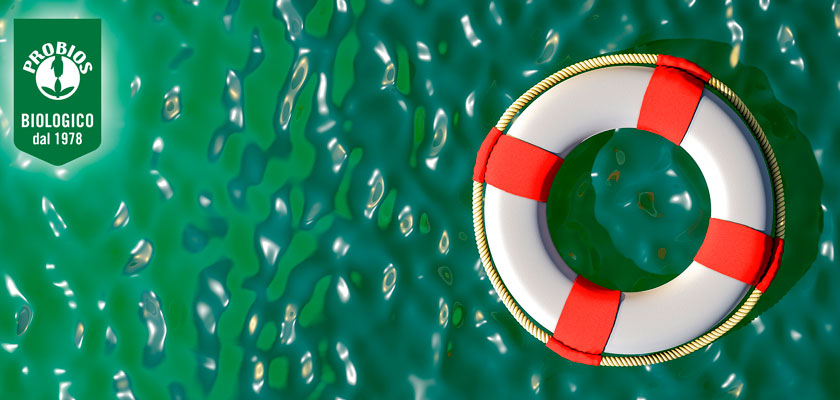
Plastic not properly disposed of or used somewhat irresponsibly almost always ends up in the sea and on the beaches, becoming a real emergency. The numbers are impressive and the consequences are dramatic also because waste doesn’t disappear. And for Italy, plastic is a great threat given that it’s bathed for two thirds by the sea: intervening on this ecological bomb, which also affects the food chain, can no longer be delayed.
Plastic bags, nets, caps and tin cans, cigarettes, bottles, cotton buds, crockery: these are just some of the waste that spills onto the beaches every year, in addition to those that float in the middle of the sea.
Thanks to the decree renamed #SalvAmare (save/love see), fishermen will be able to have an environmental certificate thus becoming "scavengers" of the sea: they will be able to bring ashore, fearless of being accused of waste trafficking, the plastic accidentally ended up in their nets and leave it in the collection stations that will be set up in the ports. The target? The promotion of waste recovery at sea for the circular economy.
But let’s come to the other side of the problem, namely that one concerning the beaches and the coasts. All of us have the responsibility not to throw or abandon our own waste (starting from the cigarette butt or ice cream wrapper), but it would also be laudable to correct others' wrong behavior or try to remedy their failures (for example, by collecting what we see abandoned on the ground, if it’s obviously possible to do so with the right precautions).
There will be numerous initiatives in the summer of 2019 that will involve environmental associations and private committees in order to clean up our coastlines.
Do you want to participate, but an event is missing in your vicinity? You can organize it yourself: cleaning the beaches is simple, if you know how to do it! On the WWF website, in addition to the possibility of participating in their initiatives, it’s explained in detail how to organize one personally.
Here are some tips to help you better contribute to the mission:
- After organizing your collection group and obtaining the necessary authorizations, it is first of all important to have strong multi-purpose gloves that are as impermeable as possible (there are completely biodegradable multipurpose gloves).
- Get grappling hooks, rakes and shovels: you must have some with a handle of at least two meters to take the rubbish under the pungent Mediterranean plants.
- Sacks: you must use sturdy, large and transparent bags: many administrations do not allow black bags. The used bags of pellets are perfect and are usually thrown away, so you can think of recycling and using them, as they are transparent, robust and free.
- Knife: marine litter is often fishing gear. A sharp knife solves difficult cases.
- DO NOT collect the shells: the calcium carbonate of the shell is fundamental in the calcium cycle of the marine ecosystem.
- DO NOT step on and DO NOT tear the plants in the dune area: the dune lives only thanks to the vegetation present along the coast, unfortunately the disordered trampling contributes to erosion and the spread of foreign plant species.
- DO NOT take the sand away: this apparently banal gesture, if carried out by everyone, can have serious consequences. If possible, clean the waste from the sand before throwing it away. DO NOT throw the deposited Posidonia on the sand, it’s not a waste and protects the beaches from erosion.
The good education and the elementary civic sense are contagious: very few moves are enough to contribute to the preservation of our beaches and our sea.





